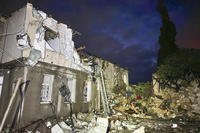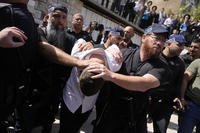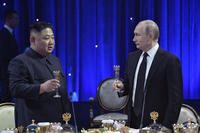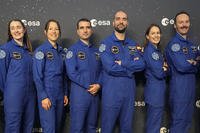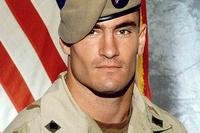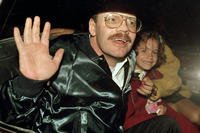GREAT LAKES, Ill. -- It's no surprise that Hospital Corpsman 1st Class Shirra Dickerson wound up being a Recruit Division Commander (RDC) -- she'd planned it from the start.
When Dickerson joined the Navy in 2004, after briefly considering the Air Force, she wanted two things: to become a Fleet Marine Force (FMF) corpsman, and return one day to boot camp, this time wearing an RDC's red aiguillette instead of a recruit ball cap.
"I decided being a military dependent was not for me," said Dickerson, who entered Navy boot camp two years after her husband enlisted in the Marine Corps. "I had always wanted to be in the medical field, so when I went to the recruiter, Hospital Corpsman was the only thing I would take."
Hoping to be co-located with her husband, and feeling a strong pull towards the field, Dickerson wanted to take the route of the FMF corpsman, serving as "Doc" to Marines. After eight years of marriage, Dickerson and her husband have only been stationed together once. After back-to-back tours at hospitals, however, Dickerson faced the possibly of a third rotation in a hospital setting. There was one other opportunity: RDC duty.
"I wanted to be that person that transitions people from civilian life to Sailor, to know that I had an impact at the start of their careers," said Dickerson. "Hopefully, I'm giving a positive outlook to them at the start of their Navy life."
The Fowlerville, Mich., native sums up the RDC experience as two sides of the same story.
"The nightmare can be the long hours, when you try so hard to train recruits, and they just don't get it or they don't do well on an inspection," said Dickerson. "Then, they'll do something out of the blue that blows you off of your feet. But the dream is the whole idea of being able to be here and mold people, training them in the basics of the Navy, and seeing how they change."
Dickerson credits mentorship she received in the fleet with developing her leadership and mentorship style at RTC.
"I've had a lot of mentors. The major one who made an impact on my life is Chief Gerfy," said Dickerson. "He took the time to explain things to us, or if you asked a question, he'd look up the answer in the instruction with you. He didn't just give you the answer; he showed you how to find the answer. When I train recruits, I try to tell them how they can find the answers for things, or who they need to talk to. My leadership is a sum of the good and bad leadership I've seen in my career."
Dickerson has earned a bachelor's degree in psychology while in the Navy, enrolling in Campbell University in Buies Creek, N. C., where she was able to take a blend of classes online and in person. She is currently halfway through a master's degree in healthcare administration. Once her education is complete, Dickerson plans on applying for an officer's commission through the medical service corps in-service procurement program (IPP).
"All I do right now is school," said Dickerson. "That's all I do right now in my spare time [too]. I try to stay healthy and P.T. [But] it can be a challenge."
Dickerson recently took the chief petty officer exam, being eligible for the first time during the 2013 cycle. Though admitting to being "anxious, unsure and excited" about the selection cycle for chief, Dickerson knows she will stay Navy for her career regardless of the outcome. She will leave RTC later this year, finally to her long-awaited billet with a field medical training battalion, with follow-on orders to the Third Medical Battalion in Okinawa. Dickerson will at that point be co-located with her husband.
"It's been quite interesting," said Dickerson, "because I've only worked with a few rates before, but here at RTC, I've worked with and met people in every rate possible, rates I never knew about. To hear their sea stories and their experiences, it really opened my eyes to what is out there."
Though Dickerson is leaving RTC this year, the experience will stay with her.
"The best thing about RTC is seeing how the recruits change from processing days to the day of graduation," said Dickerson. "They're surer of themselves. They're more independent. My hope was to mentor, train and build Sailors so that they do well out in the fleet."
Recruit Training Command graduates over 37,000 basically trained sailors annually.
